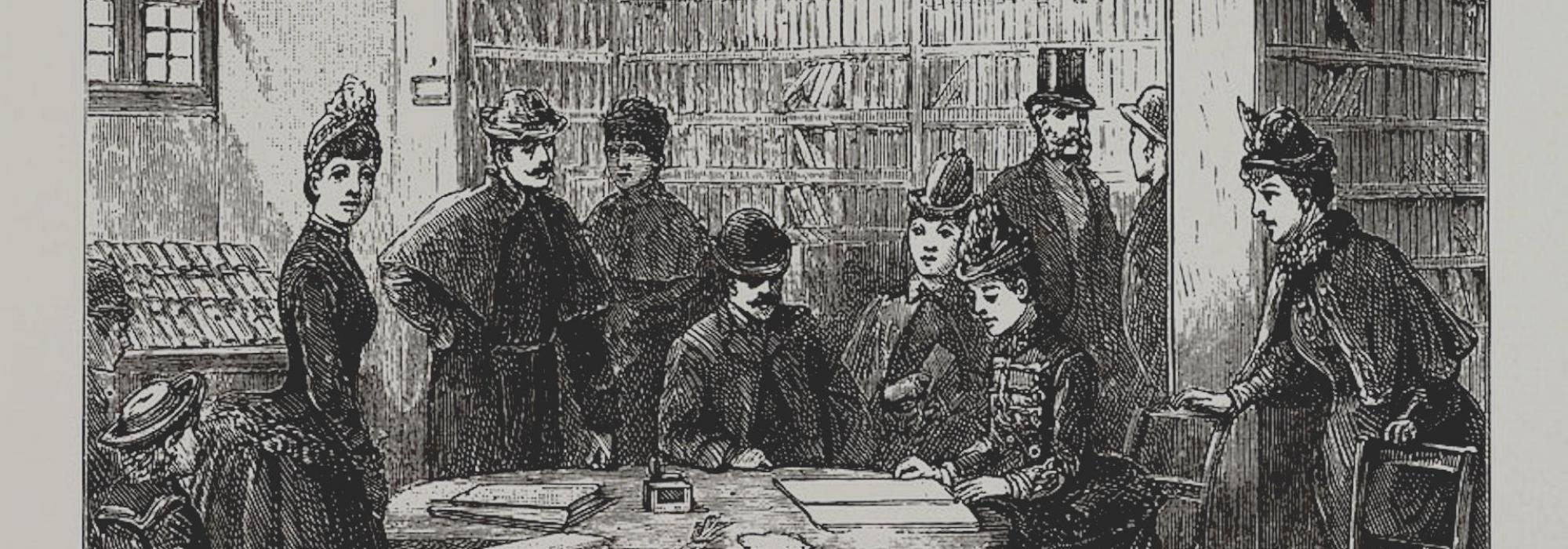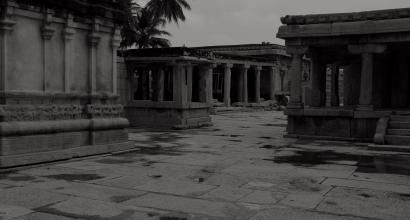DVG’s detailed exposition of the climate of autocratic rule that prevailed in most of the Princely States falls under three broad heads:
- The role played by the rulers themselves in sustaining this autocracy.
- The pervasive interference of the British bureaucracy in the administration of these States.
- The ground-level impact and consequences of this autocratic rule.
DVG’s splendid analytical powers and civilizational moorings blaze forth once again when he traces the appalling degradation of the original conception of Santana statecraft and polity by contrasting them with what he witnessed[1] in his own time.
It is a mischievous contradiction in terms to speak of an Indian autocracy; for there was never such a thing as autocracy…in India at any time when she was her own mistress; and what we see today in the [Native] States is not a faithful reproduction of the true Aryan political ideal, but only the crude handiwork of Anglo-Indian autocrats and bureaucrats who seldom were men imbued with any lofty and enduring ideal.
As we have seen in the earlier chapters, DVG’s expositions on the original conception of the Sanatana statecraft and political philosophy are rooted in the high ideals and Darshana of Sri Krishna, Kautilya and Vidyaranya Swami, memorably encapsulated in his verse, Jnanina caritum…Thus, DVG holds a mirror to the Princely States by upholding these Sanatana political ideals by citing[2] the works of Tiruvalluvar, Shivaji, and a lecture of P.K. Telang from which the following quote is memorable:
The word ‘Rajan’ (or King) means one who can keep the people contented. Power and authority were implicitly admitted to rest on the sanction and the good-will and consent of the people…He could not transcend Dharma. What is Dharma? The custom of the people, admitted and sanctified as binding law and imprimatur of those who were the knowers and guardians of the people’s culture… states in those days were not political: the work of the people was carried on by social institutions, such as the village Panchayats, industrial or mercantile guilds…
DVG does not shy away from openly naming and shaming the more egregious Princely States that flaunted autocratic rule as if it was the natural order of things. He calls the Maharaja of Kashmir as “mediaveal-minded,” Pudukotta as being in a “piteous state” and an “unprincipled Prince of Bengal” who was not “ashamed” to be “denationalized” to the extent that he was an Indian willing to “renounce India.” Likewise, DVG lavishes praise on the more enlightened and moderate Princely States such as Mysore, Travancore and Alwar among others. However, even in these States, the situation was not exactly ideal. Decades later, when DVG was asked what was his precise complaint against the Maharaja of Mysore, he answered, “there was no freedom to talk back to him even in case of genuine grievance.”
As we have seen on numerous occasions earlier, in reality, the rulers of the Princely States were mere puppets of the British crown and were answerable to the Residents. However, the entire administrative power was concentrated in the hands of the Diwan (or Prime Minister). The Resident could—and did—overrule both the King and the Diwan. One ugly consequence of this arrangement was ceaseless palace intrigue, petty politicking in the higher echelons of the administration, and the unchecked power of the bureaucracy controlled entirely by the British.
DVG deservedly reserves his harshest condemnation for this bureaucracy, painting them with colourful adjectives: “sun-dried,” “honey-mouthed,” “Maa-Baap,” “glorified clerks,” “fussy amateurs,” “wage-earners,” “profit-seekers,” “dreaded ICS,” “above the law,” and “autocratic.” And he holds up an eternal warning[3] of history dating all the way back to the fall of Rome: the nation which allows itself to be silenced by bureaucratic concessions sells its birthright for a mess of pottage.
Arguably, DVG was among the lone few of public personalities and journalists who took the corrosive British bureaucracy head-on with a delicious mix of scathing irony, biting sarcasm, and open defiance. In doing so, he also provides an eye-opening reality of how this entire system operated together with its constituent parts.
The most notable aspect of this reality is the fact that the British bureaucracy was uniformly hated by Indians including the Princes because none had a say in it despite shelling out enormous amounts of money to the British crown.
The second is the background and character of these bureaucrats both in British India and more so in the Princely States. Middle and upper-rung British bureaucrats in India became enormously wealthy solely owing to their service here. Had they remained back in England, they would have probably retired as poorly-paid clerks in either Government service or the private sector, and would have enjoyed a far lower status in a class-and-status-conscious Britain of the 18th and (mid) 20th Centuries. The case of the celebrated British writer and author, George Orwell (Eric Arthur Blair) is illustrative. Born in Motihari, Bihar, he describes his family as “lower-upper-middle class.” Yet, he was able to afford a reasonably elite education at Eton and one contributing factor was his father’s employment in the lucrative Opium Department of the Indian Civil Service in Burma, then a British colony. Author William Dalrymple’s book, The Anarchy provides some graphic details of the rampant exploitation and self-enrichment that these bureaucrats indulged in which translated into phenomenal wealth when they returned to England.
DVG culls out this duplicity straight from the horse’s mouth by quoting Lord Canning’s Despatch[4] of April 1860, calling it the “seamy side of British statesmanship.”
The safety of our rule is increased…by title maintenance of Native Chiefs affected to us…Restless men…and crafty intriguers bred up in Native Courts…live there contentedly…if we made all India into zillas…our Empire should not last fifty years; but …if we could keep up a number of Native States without political power, but as royal instruments, we should exist in India as long as our naval superiority in Europe was maintained.
But in 1860, the tentacles of the British Empire had not become as pervasive and as deep-rooted. The control of all of India had passed to the British crown just two years prior. But by the turn of the century, things had drastically changed as DVG records. Colonial England now began to send[5] to India bureaucrats of the following standard.
The average Englishman in India to-day is a wage-earner or profit-seeker, pure and simple. His pride of race is too vulgar…his sense of self-interest is…too gross…to allow…chivalry. He cannot be a liberal-hearted aristocrat and he will not be an unreserved democrat. Persons of this description abound in all branches of Indian public service…Their prejudices and perversities are well known; and in the administration…they naturally disappoint the general public…[they are]intellectual mediocrities [bereft of] any lofty idealism or virtue. They are office-hunters…and sun-dried bureaucrats.
Worse was the fact that such bureaucrats became the tutors of the Princes of the Native States, professing to teach them nuances of governance and administration. The consequences were entirely predictable as we shall see.
To be continued
Notes
[1] Memorials on the Problems of Native States – V, Selected Writings of D.V. Gundappa, Vol I, Gokhale Institute of Public Affairs, 2020, Bangalore p 249. Emphasis added.
[2] See for example: (1) Shivaji’s System of Government (2) Tiruvalluvar (3) Democracy in Ancient India. Quoted in Selected Writings of D.V. Gundappa, Vol I, Gokhale Institute of Public Affairs, 2020, Bangalore p 251-4. Emphasis added.
[3] Lord Islington on the Native States, Selected Writings of D.V. Gundappa, Vol I, Gokhale Institute of Public Affairs, 2020, Bangalore p 245. Italicised.
[4] Memorials on the Problems of Native States – IV, Selected Writings of D.V. Gundappa, Vol I, Gokhale Institute of Public Affairs, 2020, Bangalore p 238. Emphasis added.
[5] Education of the Princes, Selected Writings of D.V. Gundappa, Vol I, Gokhale Institute of Public Affairs, 2020, Bangalore pp 227-230. Italicised.










































